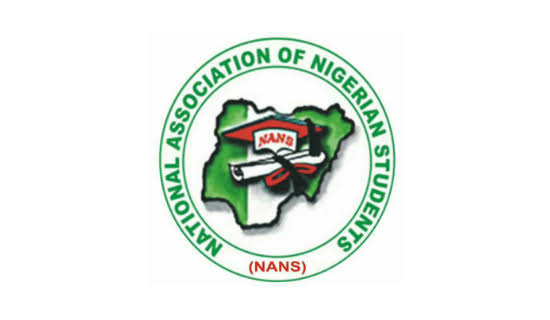The National Association of Nigerian Students (NANS) has launched a significant initiative to distribute educational materials to hard-to-reach communities within the Federal Capital Territory (FCT), Nigeria. This effort, aimed at bridging the educational gap in areas with limited access to resources, underscores NANS’s commitment to supporting the development of education in Nigeria. The program specifically targets communities where infrastructure challenges and socio-economic barriers hinder access to quality learning materials.
The distribution exercise, which took place at multiple locations including Junior Secondary School in Gaba, Bwari Area Council, was spearheaded by NANS representatives in collaboration with student bodies such as the Young Catholic Students and the Veritas University Students’ Union Government. The materials provided included textbooks, notebooks, writing tools, and other essential supplies designed to enhance the learning experience for students in these disadvantaged areas. According to NANS officials, this initiative is part of a broader vision to complement the educational reforms championed by FCT Minister Nyesom Wike, who has prioritized improving access to education across the territory.
During the event at Junior Secondary School Bwari, the head girl, Mary Agbo, expressed profound gratitude for the intervention, noting its potential to transform the academic prospects of students in her community. She highlighted the scarcity of resources in rural schools and described the distribution as a timely and impactful gesture. Agbo further appealed for the expansion of such initiatives to other parts of Nigeria, emphasizing the need for sustained efforts to address educational disparities nationwide.
NANS’s outreach was carefully planned to ensure that the materials reached communities with the greatest need. In Gaba and similar areas, poor road networks and limited funding for schools have historically restricted access to educational resources, leaving many students without basic tools for learning. By prioritizing these locations, NANS demonstrated a strategic approach to tackling systemic challenges, with the goal of empowering students to achieve academic success despite their circumstances.
The involvement of student leaders from various institutions added a collaborative dimension to the initiative. Representatives from Veritas University, for instance, played a key role in mobilizing resources and coordinating logistics, ensuring that the distribution process was efficient and transparent. Their participation also served as a call to action for other student organizations to engage in community development projects, reinforcing the importance of collective responsibility in addressing societal challenges.
Beyond the immediate provision of materials, NANS emphasized the long-term benefits of their intervention. Access to quality educational resources is expected to improve literacy rates, boost academic performance, and increase students’ confidence in pursuing higher education. In communities where dropout rates are high due to financial constraints, such initiatives can serve as a critical lifeline, encouraging students to remain in school and aspire to brighter futures.
The initiative also aligns with broader national goals of achieving universal basic education, as outlined in Nigeria’s development frameworks. By addressing the needs of marginalized communities, NANS is contributing to the reduction of educational inequalities, which remain a significant barrier to the country’s socio-economic progress. The organization’s efforts highlight the pivotal role of non-governmental actors in complementing government policies to achieve sustainable development outcomes.
FCT Minister Nyesom Wike’s administration has been recognized for its focus on infrastructural and educational advancements in the territory. NANS’s decision to align its activities with these efforts reflects a strategic partnership aimed at maximizing impact. The organization has expressed its intention to continue supporting the minister’s agenda by undertaking similar projects in other parts of the FCT, with plans to scale up operations as resources permit.
Community leaders in the beneficiary areas have also voiced their support for the initiative, describing it as a testament to the power of youth-led interventions. They noted that the involvement of students in such programs fosters a sense of ownership and responsibility among young people, encouraging them to become active participants in nation-building. This sentiment was echoed by school administrators, who commended NANS for its foresight in addressing the needs of rural and underserved schools.
Looking ahead, NANS has called for increased collaboration with government agencies, private organizations, and international partners to sustain and expand its educational outreach programs. The organization stressed the importance of collective action in tackling the multifaceted challenges facing Nigeria’s education sector, including inadequate funding, teacher shortages, and infrastructural deficits. By fostering partnerships, NANS aims to create a robust support system that ensures continuous access to educational resources for disadvantaged communities.
The distribution event concluded with a renewed commitment from NANS to monitor the impact of the initiative and gather feedback from beneficiaries. This evaluation process will inform future interventions, ensuring that they are tailored to the specific needs of each community. The organization also plans to advocate for policy changes that prioritize rural education, leveraging its platform to amplify the voices of students in underserved areas.
Mary Agbo’s remarks during the event encapsulated the hope and optimism that the initiative has inspired. Her call for nationwide expansion reflects a shared aspiration among students and educators for a more inclusive education system. As NANS continues its work, its efforts in the FCT serve as a model for how targeted interventions can create meaningful change in Nigeria’s educational landscape.
The success of this program underscores the potential for student-led initiatives to drive social impact, particularly in areas where government resources are stretched thin. By focusing on inaccessible communities, NANS has addressed a critical gap in Nigeria’s education system, setting a precedent for other organizations to follow. The initiative’s emphasis on collaboration, sustainability, and long-term impact positions it as a vital contribution to the country’s development goals.




